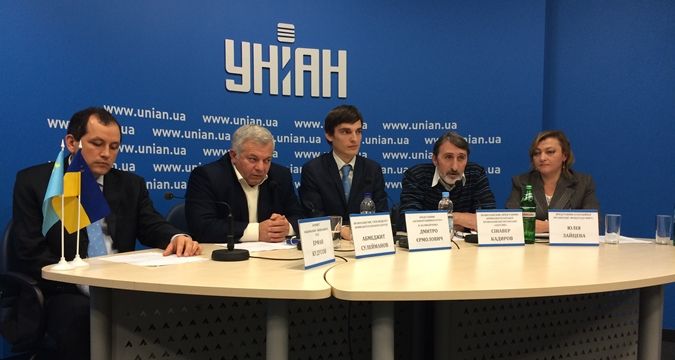Discouraged by what they see as Kyiv’s indifference to their plight and failure to come up with an action plan to end the occupation of their homeland, Crimean Tatars from the Mejlis and other human rights organizations have formed a new group to free the peninsula from Russian occupation and promote the restoration of an autonomous Crimean Tatar republic.
The organizers say that they will use the status of the Crimean Tatars as the legitimate indigenous people of Crimea to put pressure on international organizations and on the Ukrainian government to take steps to end the Russian occupation and restore their autonomy.
“The 22 months of the occupation of the peninsula of Crimea have shown,” the organizers say, “how indifferent the Ukrainian authorities are to the problem of its return under their jurisdiction.” Only the Crimean Tatars have been other than “indifferent” and taken real steps to oppose “the occupiers and the collaborationists,” including by the blockade.
“We are concerned by the fact that despite the declarations of the authorities that Crimea is not forgotten, practically nothing is being done for its liberation,” according to Sinaver Kadyrov, a representative of the Crimean Tatar rights organization Azatlyk. That is especially bad because the residents of Crimea are suffering ever more with each passing day.
As a result, he says, “we have come to the disappointing conclusion that the government really does not have a program for the de-occupation of Crimea,” despite all its bold words.
Because that is the case, he says, the Crimean Tatars have decided that they must take action on their own, using the fact that they have the legal status of being the indigenous population of Crimea, something both international organizations and the Ukrainian authorities must respect and take into consideration.
To promote that, they have formed a new Azatlyk association of public organizations which want to restore the Autonomous Republic of Crimea as the Crimean Tatar Autonomous Republic” by insisting on the status of the Crimean Tatars as a legally defined community currently being subjected to ethnocide.
Abmesdzhit Suleymanov, a representative of the Mejlis in Kherson oblast says that he is certain that “the Crimean Tatars must stand at the same level with other nationalities in Ukraine and receive the support of the state.” He said the Crimean Tatars must force Kyiv to overcome corruption and act in the interests of the Ukrainian people, including the Crimean Tatars.
The new association has been registered in Ukraine and plans to work with international organizations to make its case. It represents a serious challenge both to Kyiv and to those bodies. To Kyiv, it seeks a kind of federal status different than the one the Ukrainian constitution offers and suggests that the Crimean Tatars plan to continue to act on their own as far as the blockade is concerned.
And to international bodies, it also constitutes a challenge that these bodies live up to their charters, recognize the genocide now going on in Crimea, and act according to the Genocide Convention in order to end the Russian Anschluss and restore the Crimean peninsula, with a newly constituted Crimean Tatar Republic, to Ukraine.

